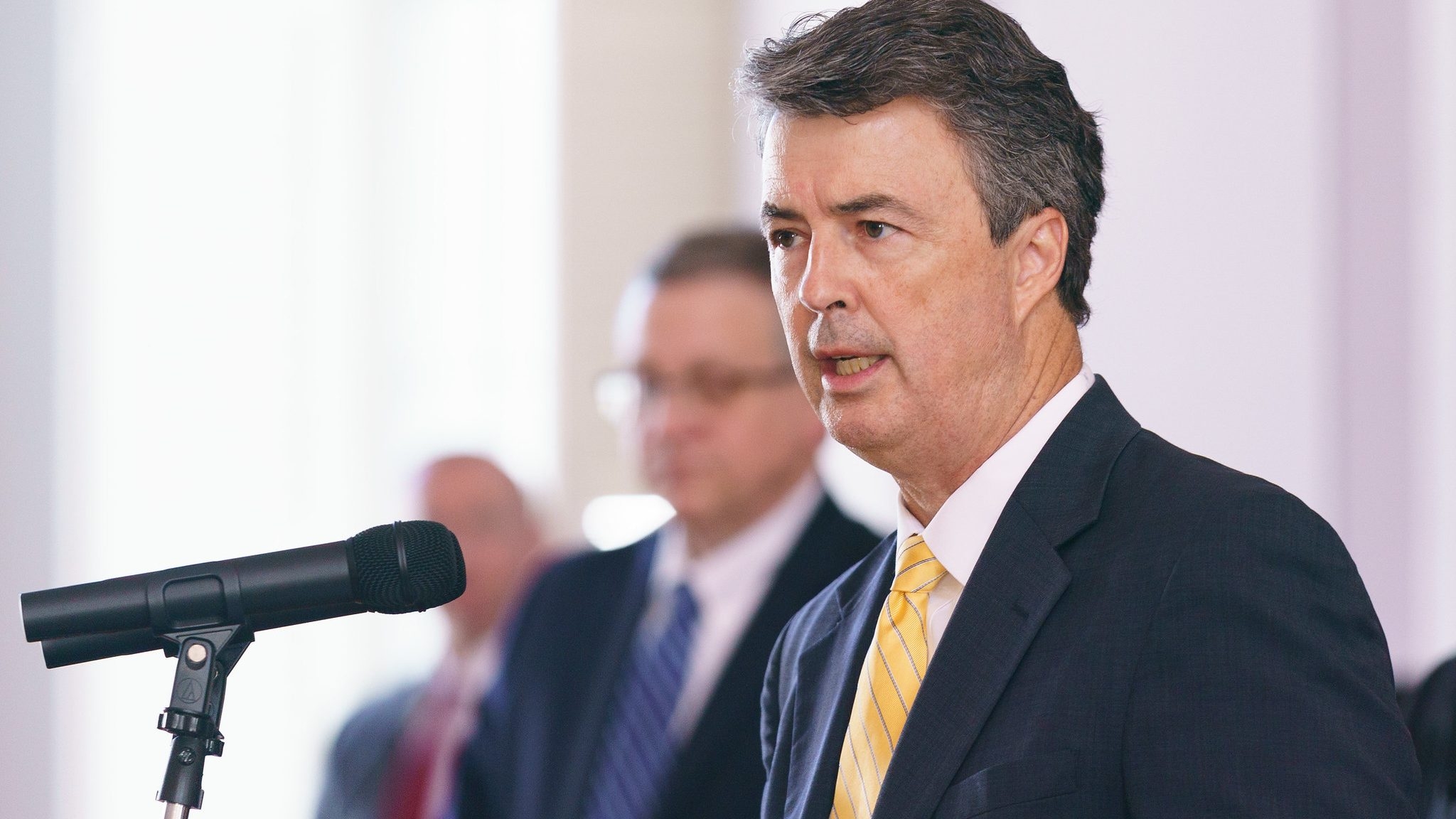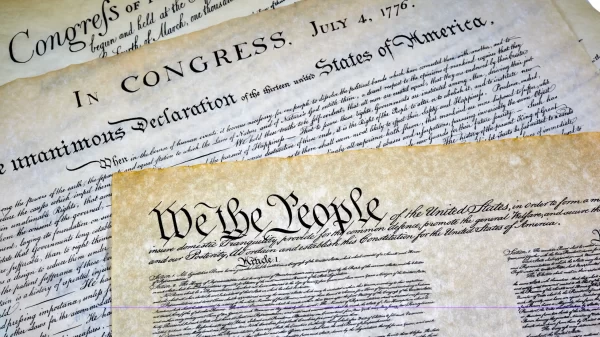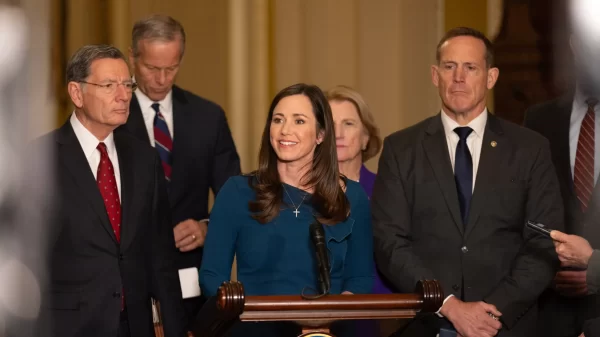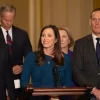Alabama Attorney General Steve Marshall wrote in an opinion Tuesday that county and city governments can not provide public funds to private businesses that were impacted by the forced economic shutdown to fight the coronavirus.
“During the COVID-19 pandemic, this Office has received numerous inquiries from counties and municipalities regarding whether a program could be developed using Amendment 772 (Section 94.01 of the Alabama Constitution) as a vehicle for giving economic development grants and loans to small businesses,” Marshall wrote. “While the desire to keep these businesses afloat during the crisis is understandable, unless the grants and loans contemplated under these proposed programs serve a public purpose rather than merely confer a private benefit, they violate section 94 of the Alabama Constitution.”
“Section 94 prohibits the Legislature from “authoriz[ing] any county, city, town, or other subdivision of this state to lend its credit, or to grant public money or thing of value in aid of, or to any individual, association, or corporation whatsoever, or to become a stockholder in any corporation, association, orcompany, by issuing bonds or otherwise (emphasis added).” ALA. CONST. art.
“The Alabama Supreme Court, howeve r, held in Slawson v. Alabama Forestry Commission, 631 So.2d 953, 956 (Ala. 1994) that Section 94, as amended, is not violated when the funds of a subject governmental entity are appropriated for a “public purpose.” Whether the funds are appropriated for a public purpose depends on if they bring about a “direct public benefit of a reasonably general character . . . to a significant part of the public ” rather than merely a “remote and theoretical benefit. ”
Amendment 772 is widely cited by proponents of such a grant or bridge loan program as providing a constitutional basis for the program.
Marshall explained, “The Legislature passed Amendment 772 as a codification of Slawson insofar as economic and industrial development is concerned. Amendment 772 specifically gives a county or municipality authority “to lend its credit to or grant public funds and things of value in aid of or to any individual, firm, corporation, or other business entity, public or private, for the purpose of promoting the economic and industrial development of the county or the municipality. ”
There are two requirements under Amendment 772, the county or municipality must comply with: “(1) The action proposed to be taken by the county or municipality is approved at a public meeting of the governing body of the county or municipality, as the case may be, by a resolution containing a determination by the governing body that the expenditure of public funds for the purpose specified will serve a valid and sufficient public purpose, notwithstanding any incidental bene fit accruing to any private entity or entities and (2) At least seven days prior to the public meeting, a notice is published in the newspaper having the largest circulation in the county or municipality, as the case may be, describing in reasonable detail the action proposed to be taken, a description of the public benefits sought to be achieved by the action, and identifying each individual, firm, corporation, or other business entity to whom or for whose benefit the county or the municipality proposes to lend its credit or grant public funds or thing of value.”
“Although Amendment 772 gives counties and municipalities flexibility to grant or loan funds to private entities without violating section 94, the definition of “economic and industrial development” for purposes of Amendment 772 must be read in light of Slawson’s requirement that the benefit conferred be a “direct public benefit of a reasonably general character . . . to a significant part of the public,.” Marshall wrote. “Whether the expenditure is made for a public purpose is a factual question to be determined by the local governmental body making the expenditure by looking to the statutes setting forth that body’s authority. Opinion to Honorable Robert S. Presto, Escambia County Attorney, dated August 24, 1995.”
“Grants, loans, interest payments, and other similar awards to a private business for the sole reason of keeping that business operating would not meet the Slawson test,” Marshall stated. “Whereas such payments would bestow a significant private benefit, any benefit to the public -at-large would be remote and indirect. The governing body of the county or municipality must be able to articulate a rationale for the expenditure which benefits the public-at large in a more direct manner and is supported by the governing body’s statutory authority. Furthermore, using entities such as the Chamber of Commerce or private banks as “pass-throughs” to facilitate the expenditures does not change this analysis so long as ultimately public money is being lent or granted in aid of a private entity and no public benefit is served.”
“Conclusion While the Office sympathizes with the desire of municipalities to assist small business during the COVID-19 crisis, the current dire circumstances do not provide for a workaround to the requirements of Section 94 of the Alabama Constitution,” Marshall concluded. “As previous Attorney General’s Opinions have found, unless the grants and loans contemplated under these proposed assistance programs serve a public purpose rather than merely confer a private benefit, they violate section 94 of the Alabama Constitution.”
The Attorney General’s opinion effectively bars efforts by city councils and county commissions to help businesses in their towns with grants or bridge loans in order to make it through the forced economic shutdown to stop the spread of the coronavirus.
There is some federal assistance available through the CARES Act and Senate Majority Leader Mitch McConnell, R-Kentucky, has proposed a $250 billion package to provide assistance businesses; but that bill has encountered resistance from Senate Democrats.
Nationally recognized financial consultant Dave Ramsey and other persons in the financial consulting field have long recommended that businesses, and even families should maintain an emergency fund equal to three to six months of expenses. Unfortunately, many business (including very profitable ones) failed to follow that advice and were overleveraged with insufficient cash reserves when they were unexpectedly forced to close by county health officers and orders from Alabama Governor Kay Ivey (R).
The forced economic shutdown to fight the spread of the coronavirus began to be implemented in early March and will not be lifted before April 30. On Thursday, Treasury Secretary Steve Mnuchin expressed optimism that the economy will be able to reopen at some point in May. All Alabama citizens remain under a shelter in place order thru April 30.
Globally 1,491,829 persons have been confirmed as having COVID-19 and 87,458 have died. In this country 468,566 Americans have contracted COVID-19 and 16,691 have died. Alabama has had 2,838 confirmed cases of COVID-19. 78 Alabamians have died and 339 are hospitalized with COVID-19.
To read Marshall’s opinion, click here.
EDITORIAL NOTE – Yesterday morning the Alabama Political Reporter published an article based on a legal opinion we were forwarded that we wrongly believed was written by Steve Marshall. That story was immediately retracted when the AG’s office reached out to us. We deeply regret the error, and we apologize for any confusion that our error may have caused.




















































